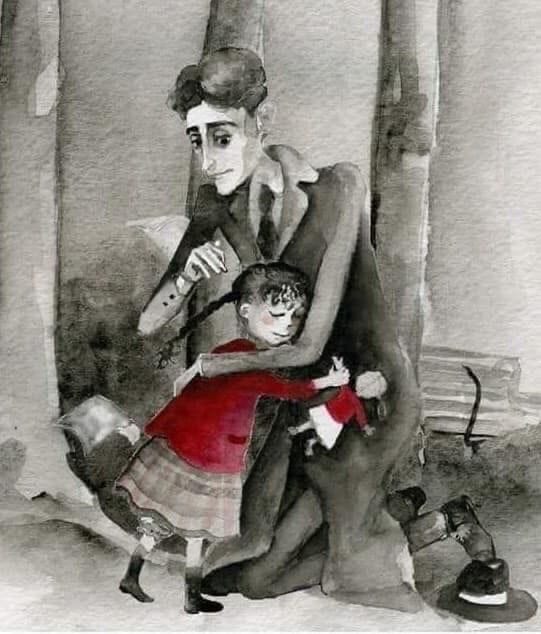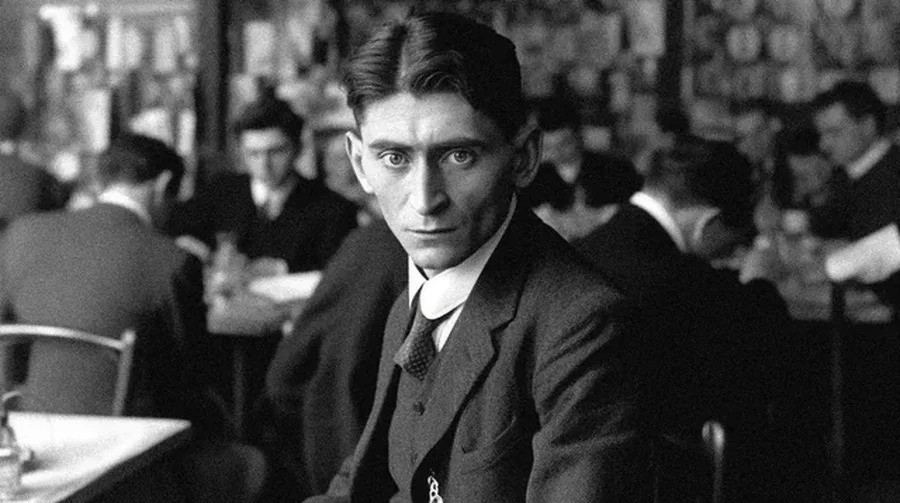The Prague-born novelist Franz Kafka (1883–1924) was a seminal writer of the 20th century. The story goes that in 1923, he was walking through his favorite park in Berlin. He ran into a girl who was crying because she had lost her favourite doll. She and Kafka searched for the doll unsuccessfully. Kafka told her to meet him there the next day and they would come back to look for her.
The next day, when they had not yet found the doll, Kafka gave the girl a letter “written” by the doll. It read: “Please don’t cry. I’ve embarked a trip to see the world. I will write to you about my adventures.”
This became a charming game of healing play for the girl that would continue until the end of Kafka’s life.
During their meetings at the park, Kafka read the letters of the doll carefully written with adventures and conversations that the girl found adorable. After some time creating a little world of travelling and meetings for the lost doll, Kafka bought a new doll and brought it to the girl at the park.
“It doesn’t look like my doll at all,” said the girl.
Kafka handed her another letter in which the “returned” doll wrote: “Don’t be bewildered. My travels have changed me. I’m still your doll and always will be.”
The little girl hugged the new doll and brought her home, delighted.
A year later, Kafka passed away at the age of 40 from tuberculosis. He never married and had no children. Many years afterward, when the now-grown woman was reflecting on this childhood incident, she found a letter inside the replacement doll. It was signed by none other than Kafka, the storyteller of her doll’s adventures.
In the tiny letter, he had written: “Everything you love may be lost, but in the end, love will return in another way.”



